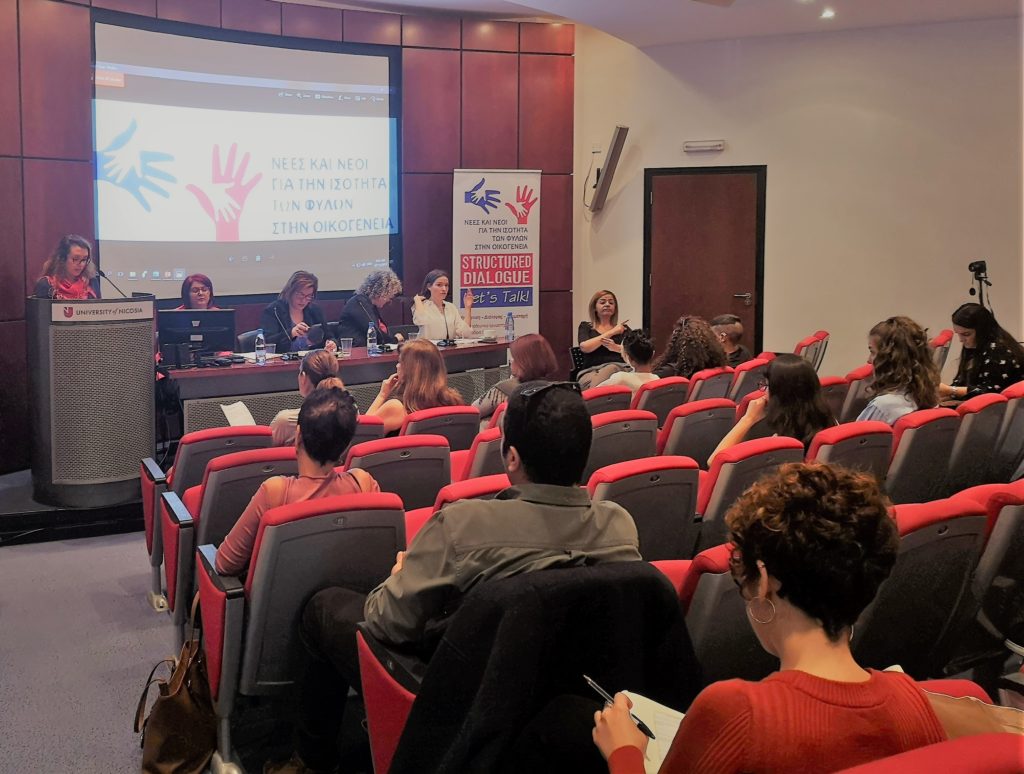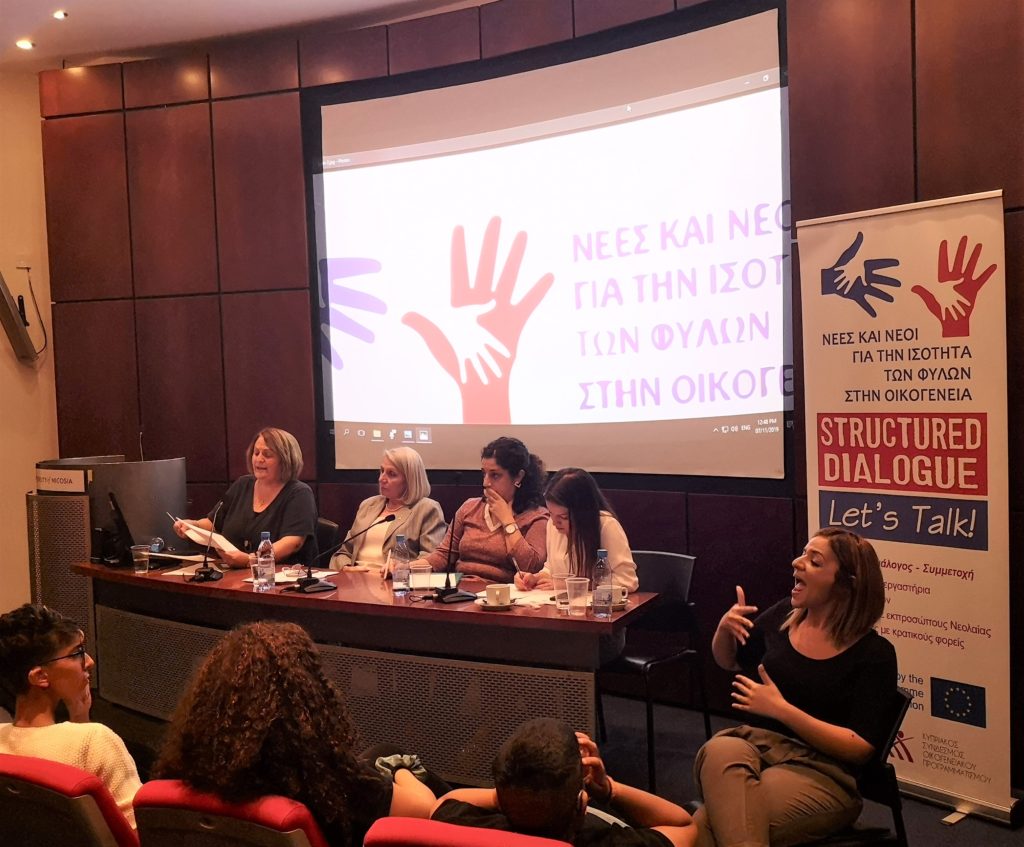Within the framework of the European funded ERASMUS + program (Key Action 3 – Structured Dialogue) a workshop entitled ‘Youth on gender equality in the family. The importance of the state and social institutions” was held on Thursday, 7 November 2019. The workshop provided a brief overview of the current situation by relevant stakeholders who presented the existing structure, the social policies being implemented and the programs being developed. They presented the goals set by each institution separately but also the gaps, weaknesses and needs that need to be met in order to achieve equality within the family.
Specifically in the first panel were three introductory speeches. The first of Mrs. Maria Kiratzi, Head of Social Welfare Services who spoke about family support infrastructures and current legislation to promote equality in the family. The second from Mrs. Athina Michaelidou, Head of the Cyprus Institute of Education, which analysed the role of education in achieving equality within the family, specifically for curricula, family planning, sex education and stereotypes. The third by Mrs. Andris Savva, Officer of the Office of the Commissioner for Gender Equality, who presented the role of the Commissioner for Gender Equality in achieving equality within the family. The national action plan for equality and any social / political interventions of the institution. In the second panel they were presenting speeches, Ms. Niovi Georgiadis, officer of the Office of the Commissioner for Administration and Protection of Human Rights who analyzed the role of the Commissioner for Administration on gender equality and reconciliation of professional and personal life. Ms. Skevi Koutra Koukouma, Deputy Chairman of the Parliamentary Committee on Labor, Welfare and Social Security, who spoke on Parliament’s role, interventions and proposals to promote equality in the workplace and the family, and finally Ms. Zina Lysandrou Panagidis, Mayor of Lefkoniko and Chair of the Union of Municipalities Equality Committee, who presented the role of local government in promoting care programs for dependents. Examples of programs implemented in municipalities.
At the end of each round of speeches there was a discussion by representatives of organized groups and young people participating in the program. At the end the youth team made an initial review of what was presented, exchanged thoughts, concerns and laid the groundwork for future workshops to be carried out under this program.
#ErasmusPlus #StructuredDialogue #GenderEquality #Familypolicy #Youthteam




